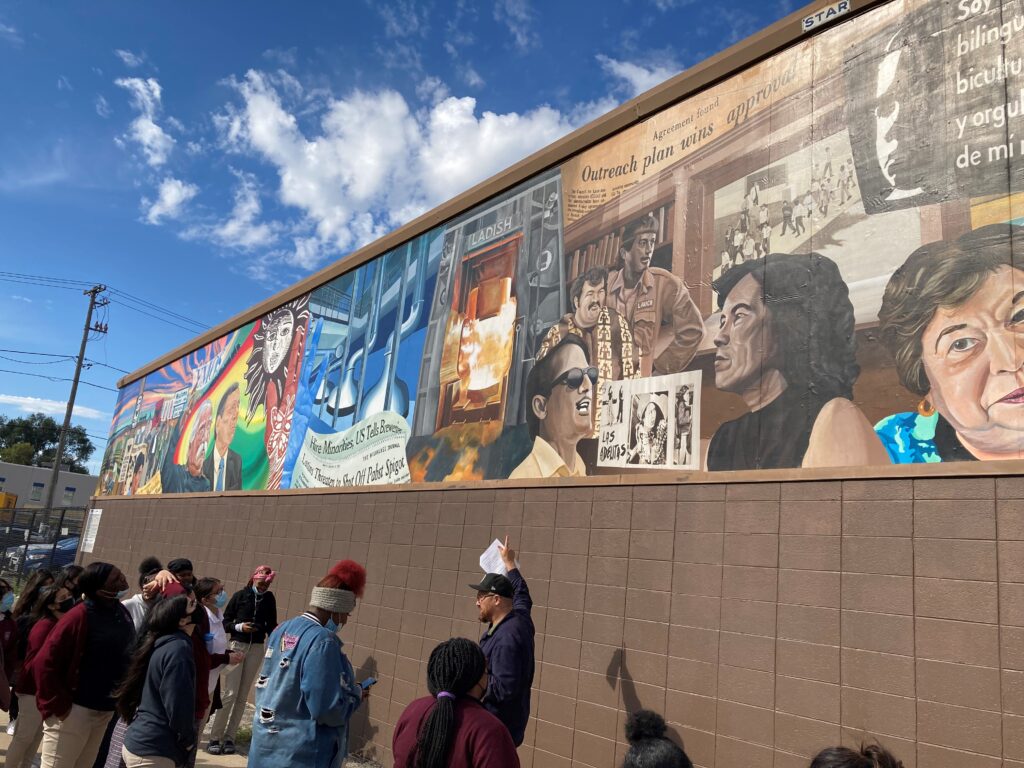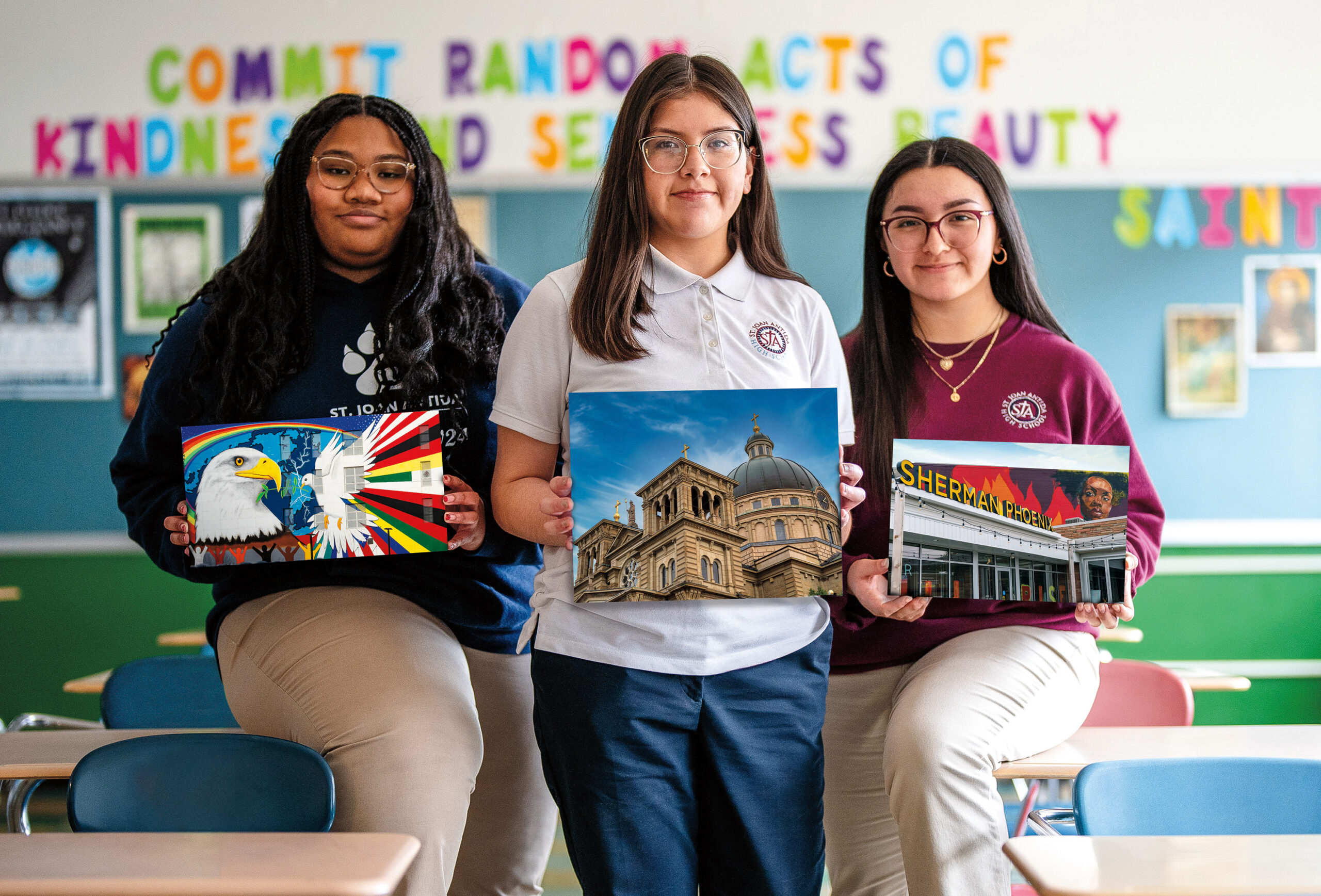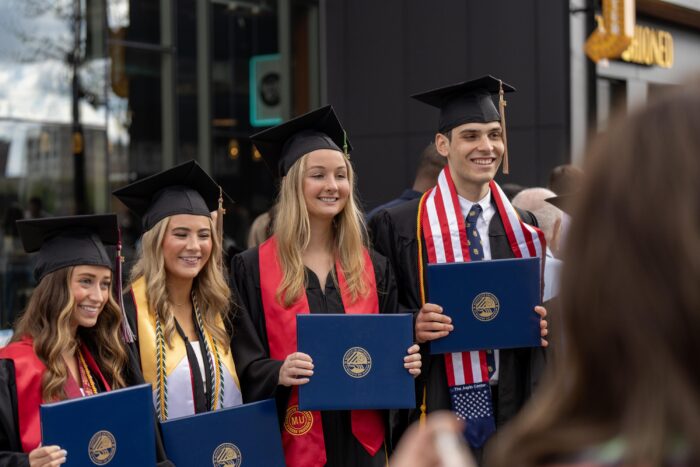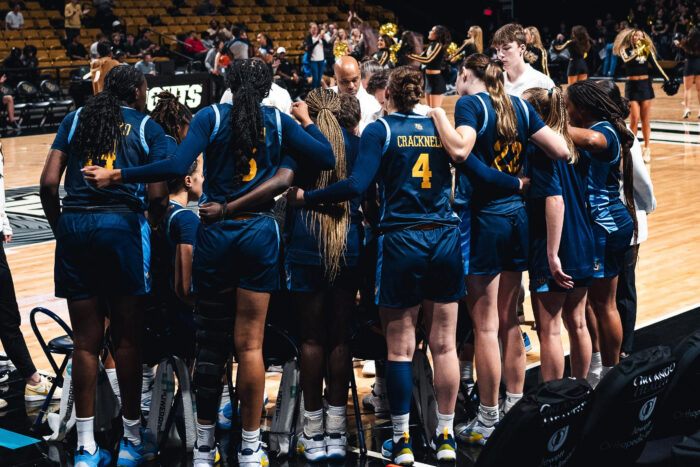There’s an issue that arises when history is taught in a traditional K-12 classroom: The material tends to drift through young minds with an air of far-off places and faint relevance. Dates and facts may linger just long enough to help a student pass a quiz.
This educational shortcoming, known as banking, has been a target of Dr. Melissa Gibson, associate professor of educational policy and leadership, in her work preparing Marquette education students to be teachers. Then the COVID pandemic made it feel even more urgent.
At St. Joan Antida High School, an all-girls Catholic school in downtown Milwaukee, administrators noticed an alarming slip in social studies performance when the school switched to remote learning in 2020. St. Joan’s innovative new principal, Megan Otero, craved creative solutions to put students back on track. And thanks to some word-of-mouth connections with Marquette, she partnered with Gibson on a new credit-recovery elective that debuted when in-person classes resumed in 2021.
“What the students are learning is a completely new way to see their city.”
Dr. Melissa Gibson
Recognizing the limits of conventional classroom instruction in addressing this gap, Gibson drew upon a place-based framework she’d been applying in Marquette courses for future educators. Dubbed Explore Milwaukee, that pilot course put students in contact with living people and institutions outside the classroom, while featuring Black, Latinx and Indigenous history in which students could recognize their own roots. It ran two semesters at St. Joan while garnering impressive results and broader interest, including from leaders of Milwaukee Public Schools.
Three years later, that promising pilot has grown into the ambitious new MKE Roots: The Democratizing Local History Project. Supported by a $1.27 million award from the U.S. Department of Education, Gibson and partners are launching a three-year program in multiple K-12 schools, where social studies instruction will benefit from a new curriculum and vibrant educational ecosystem that allows for more than merely depositing facts into students.
“What the students are learning is a completely new way to see their city,” says Gibson. “My charge was this: I want them to be curious, and to see themselves in the social studies.”

Helping to form the framework of Gibson’s curriculum have been local storytelling initiatives and partnerships led by Dr. Robert Smith, Harry John Professor of History, and Milwaukee cultural leader Adam Carr. MKE Roots is now housed under Marquette’s Center for Urban Research, Teaching and Outreach, which Smith directs.
The program also leverages the expertise of Dr. Sergio González, assistant professor of history at Marquette, whose involvement started when he led St. Joan students on a tour through Walker’s Point.
“I think it’s a form of curriculum that could be replicated all across the state of Wisconsin.”
Dr. Sergio González
“I tell students how our family histories are built into these spaces where we walk around, visit and meet each other,” González says. Many students went wide-eyed when they heard that Wisconsin’s earliest known Mexican immigrant settled in Walker’s Point in the 1880s, less than 40 years after Wisconsin became a U.S. state. “These histories exist all around us,” he adds. “I think it’s a form of curriculum that could be replicated all across the state of Wisconsin.”
Key learning sites for MKE Roots will include America’s Black Holocaust Museum, city art installations and other landmarks in communities of color. Other tools will include contextual backstories and question guides.
The MKE Roots project will also fund and facilitate weeklong professional development summer camps for interested educators that will include visits to touchstones of the curriculum and opportunities to tailor material to unique classrooms, where teachers are often hungry for new resources.
“MKE Roots leans heavily on Marquette’s mission of engaged scholarship and outreach,” Smith says. “We’re doing our part as responsible neighbors and citizens here in Milwaukee.”



